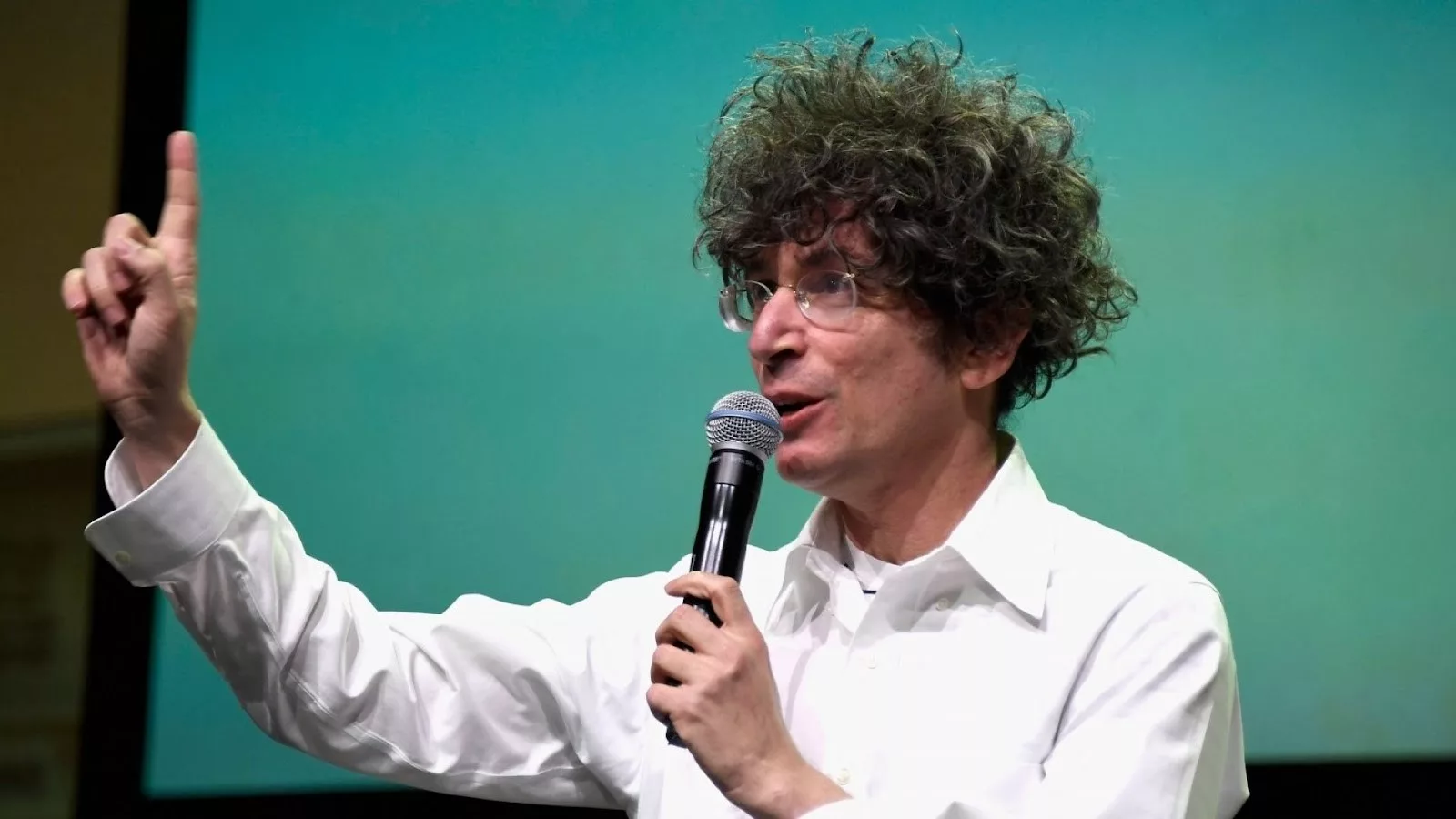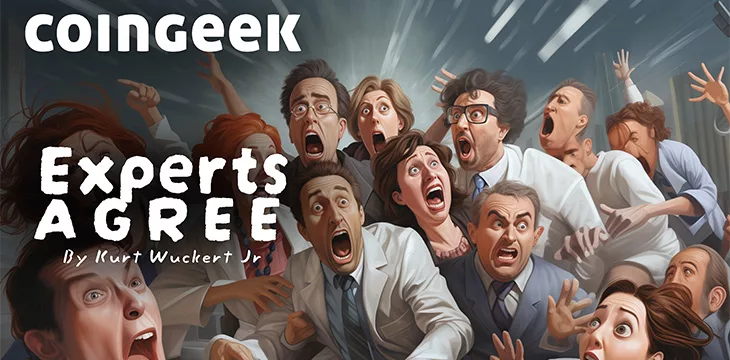|
Getting your Trinity Audio player ready...
|
To many, outsourcing our decision-making to “experts” has become as routine as ordering DoorDash when we’re too lazy to cook. Whether we are consulting the almighty internet for the top 5 softest toilet papers to bless our behinds or religiously following the weatherman’s prediction for a sunny day only to be drenched in an unexpected downpour, we’ve placed our trust in the hands of those who “know better.”
We lean on expert reviews to choose our OLED TVs, carefully selecting one that promises not to burn in our binge-watching shadows onto the screen. And when flu season rolls around, we roll up our sleeves for the vaccine, entrusting our immune systems to the scientists who’ve spent more time with viruses than anything else in their lives. Speaking of which, the CDC recommends a new COVID-19 jab this spring!

But here’s the kicker: as much as we’d like to believe that following expert advice is the yellow brick road to the Emerald City, history and a hefty dose of skepticism remind us that it’s more like following a winding path in the Enchanted Forest, where sometimes, the trees have a habit of throwing apples at your head, and the great Oz is just a dude behind a curtain trying to keep you scared enough to keep playing his games…
From the catastrophic miscalculations of Chernobyl to the economic meltdown of 2008, and a few goodies in between, the lesson is clear: sometimes, the experts get it spectacularly wrong.
Experts agree:
– Capitalism causes climate change.
– You need a quarterly jabs 💉
– Craig Wright is just a security guy. https://t.co/os7T7eLAJA— Kurt Wuckert Jr | GorillaPool.com (@kurtwuckertjr) February 11, 2024
The weatherman says this will be a sunny article, but you might want to bring an umbrella…just in case.
Some examples
- The Thalidomide Tragedy unfolded when a drug marketed as a safe sedative for pregnant women led to thousands of babies being born with severe birth defects. This disaster highlighted the catastrophic impact of insufficient drug testing and regulatory oversight, shaking global confidence in pharmaceutical safety and prompting significant changes in drug approval processes. We still live in a world paved by the consequences of this massive disaster perpetuated by trust in experts.
- The decision by the Lorillard Tobacco Company to use asbestos in Kent Micronite cigarette filters from 1952 to 1956 is a lesser-known but equally alarming example of disastrous expert advice. Marketed as providing “the greatest health protection in cigarette history,” these filters actually exposed smokers to crocidolite asbestos, significantly increasing their risk of developing deadly diseases like mesothelioma and lung cancer. Despite early warnings about the harmful effects of asbestos, it took years before the company discontinued its use, highlighting the severe consequences of prioritizing commercial interests over public health. Ask your parents about the ads about doctors smoking filtered cigarettes—for health!

- The Global Financial Crisis of 2008 was another profound instance of expert advice gone awry. Financial experts and institutions touted the stability of the housing market and encouraged the proliferation of high-risk financial products under the assumption that housing could never have a major correction, leading to a devastating economic collapse. This crisis underscored the dangers of complex financial instruments and the critical need for more stringent financial regulations—from MORE EXPERTS.
Is this a Bitcoin article?
Of course, it is! And the alleged experts agree, and the market has spoken that BTC is Bitcoin, and Satoshi always said, “Not your keys, not your coins…” and “Don’t trust; verify,” Right?
Wait a second…
Actually, none of those things are objectively true. In fact, the quotes are observably false, but they persist because sometimes “experts” in Bitcoin aren’t really experts at all. Much like the credit ratings companies in 2007-08 refused to downgrade the big banks, a lot of “experts” just so happened to be in the right place at the right time to be seated in a place of authority, and they are too scared or deeply entrenched to offer any valuable advice at all. Just remember, the top is in when you start seeing this guy’s ads again…

In the Satoshi Trial, where my brain has been focused for the last few weeks, we have been forced to grapple with what it means to be a cyber forensics expert. We have heard Dr. Craig Wright criticizing his own experts and those brought in by COPA. In fact, it might be the most pedantic part of the trial so far to hear Wright criticizing the experts at every turn, and on Monday, February 26, we finally got to see one on the stand.
Patrick Madden of Right Click Forensic testified today explaining how he has some basic certifications and a career in IT and forensic audit.
His website wasn’t very inspiring…

I don’t want to drag Madden through the mud because he, frankly, just seemed like a normal guy being paid to do his job. But in my study of U.K. standards for certifications, I was shocked to see how little was actually required compared to U.S. forensic experts.
In court, Madden explained a list of things he had no experience in and explained all the reasons why he didn’t even attempt to replicate the environment he was giving his opinion on while also side-stepping the fact that, in a few cases, he had never even used the software in question—EVER!
This was bad enough. But the worst was to come in the closing of the examination, where the court was made aware that not only did Madden not try to maintain his independence in the process, but in fact, held 3-4 meetings at the offices of the Plaintiff’s law firm Bird and Bird, hosted them at his own coworking office another 3-4 times and even had them act as a sort of secretary in the preparation of his report.
This would have been thrown out of U.S. Court immediately. In fact, this would likely be contemptuous behavior on behalf of the auditor and the law firm. However, Madden didn’t seem too worried that he had Bird and Bird help him “finesse” the final report.
As someone who has spent hundreds of days covering court cases, this was one of the wildest exchanges I have ever seen. Expert witnesses are supposed to be thorough and impartial—speaking about things that apply only to their expertise. They are asked not to speculate and to always test with the scientific method. Of course, we live in an imperfect world, but what I saw on Monday from the courthouse was absolutely baffling in both its lack of rigor, lack of sterility and complete disregard for independence.
I hope this gets rectified in court, but I’m not optimistic.
Now, I have to go check the weather and do my doctor-recommended tooth-brushing routine before bed. Experts agree it’s very important!
Check out all of the CoinGeek’s special reports on the Satoshi Trial (COPA v Wright).

 07-14-2025
07-14-2025 





